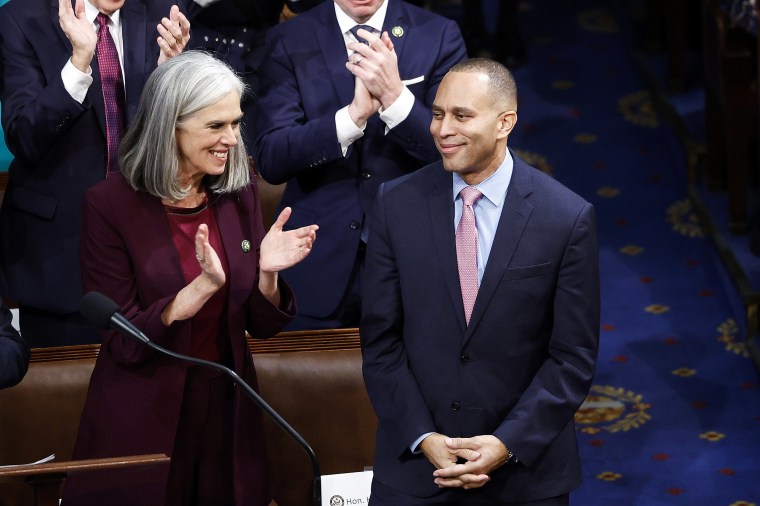Democratic Leader Hakeem Jeffries may not emerge with the speakership as Republicans remain divided on who they'll elect to lead the House of Representatives, but he's done something that hasn't been done in more than a decade.
When the New York congressman secured 212 votes for speaker Tuesday afternoon, it was the first time since 2007 that a Democratic leader has won support from every single member of their caucus.
Rep. Pete Aguilar, D-Calif., the new House Democratic Caucus chair, made note of his party's unified stance as he nominated Jeffries again during the second round of voting.
"We are gonna stay here to get this done. We are unified, and we're all gonna support Hakeem Jeffries for speaker, the lead vote-getter in the last ballot," he said.
California Democratic Rep. Nancy Pelosi had been the party's leader since 2003 — she stepped down from that leadership post after last year's elections.
But after she secured the speakership in 2007, when she won unanimous support from her caucus after helping to lead the party back into majority, Pelosi saw some low level of dissent within her party in subsequent years (no Democrat voted against her in 2009, although then-Illinois Rep. Luis Gutiérrez did not vote).


